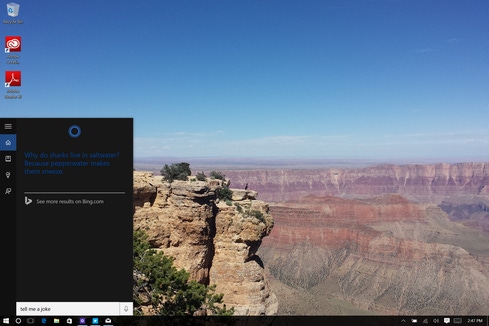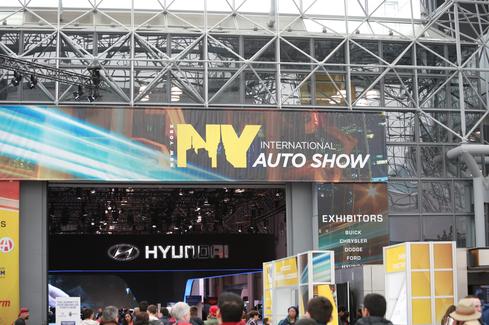Microsoft's is hoping to important Cortana, its digital assistant, to cars in the future, but a J.D. Power report finds that not everyone is thrilled with Apple, Google, and other invading their vehicles.


New York Auto Show: Cool Cars With Hot Tech
New York Auto Show: Cool Cars With Hot Tech (Click image for larger view and slideshow.)
Microsoft is looking to move its digital concierge -- Cortana -- into the driver seat by developing a heads up display (HUD) that would project onto the windshield of a vehicle.
The announcement, reported in the Taipei Times, was made by Samuel Shen, chief operating officer at the Microsoft Asia-Pacific Research and Development Group, at the Microsoft TechDays conference on Tuesday, Sept. 15, in Taipei.
"We have not launched similar products due to the high cost, but we hope to have further discussions with Taiwanese partners to jointly explore future possibilities," the paper reported Shen as saying.
Shen was light on details, however, opting not to mention a particular timetable or any specific partners for the project.
The announcement is part of Microsoft's larger "Windows in the Car" strategy, which is seen as a competitor to Apple's CarPlay technology and Google's Android Auto platform.
Consultancy firm AlixPartners projected that over the next four years the global market volume for connectivity services and hardware will double from an estimated $20 to $40 billion. More than half of it will be in services and apps.
In addition, a 2013 report from IHS Automotive forecast the number of Web-connected cars would top 152 million by 2020.
Despite optimistic growth forecasts, an August report from J.D. Power & Associates suggests consumers are largely turning a blind eye towards connected-car technologies.
One finding in particular indicates Cortana, Siri, and their digital friends will face an uphill battle when it comes to consumer acceptance. The report found that 43% of car owners surveyed in the report said they never use their in-vehicle concierge.
The report also revealed features that are specifically not wanted include CarPlay and Android Auto, along with in-vehicle concierge services and in-vehicle voice texting.
"While automakers are spending a lot of money on in-vehicle technology, consumers also are paying for the feature," Kristin Kolodge, executive director of driver interaction and HMI (Human Machine Interface) research at J.D. Power, wrote in the Aug. 25 report. "If new-vehicle owners are not using the technology in their current vehicle, most say they don’t want it in their future vehicles."
Despite the report's finding, Microsoft, Apple, and Google seem to be moving ahead. For instance, using a range of devices, services and technology, Windows Embedded Automotive 7 includes HUDs, eye tracking, and voice technology.
[Read more about why autonomous cars are in.]
Microsoft is also touting its experience of more than 10 years in the automotive space and its relationships with automakers including Ford, Fiat, Nissan, and Kia.
Taking a look at possible rivals, Apple's CarPlay, which is currently available on select cars, features Siri voice control. It is specially designed for driving scenarios and also works with a car's controls, whether knobs, buttons, or touch screens.
Android Auto, designed to work with Android smartphones running 5.0 (Lollipop) or higher, was also designed to minimize driver distraction. It offers an intuitive interface featuring integrated steering wheel controls and voice commands.
The platform is available for a wide range of automotive brands worldwide, including Audi and Ford. It is currently available in 11 different countries.
At the same time, automakers are developing their own proprietary connected car platforms. A July report from Reuters indicates those companies may not be interested in sharing the data they gather from customers.
About the Author(s)
You May Also Like







